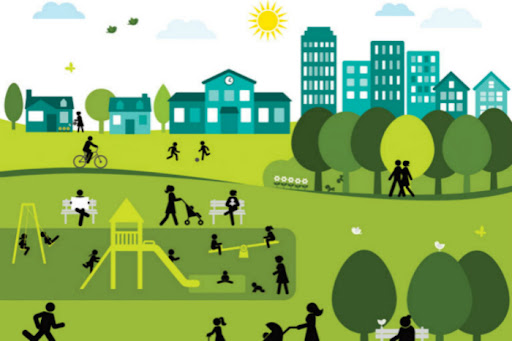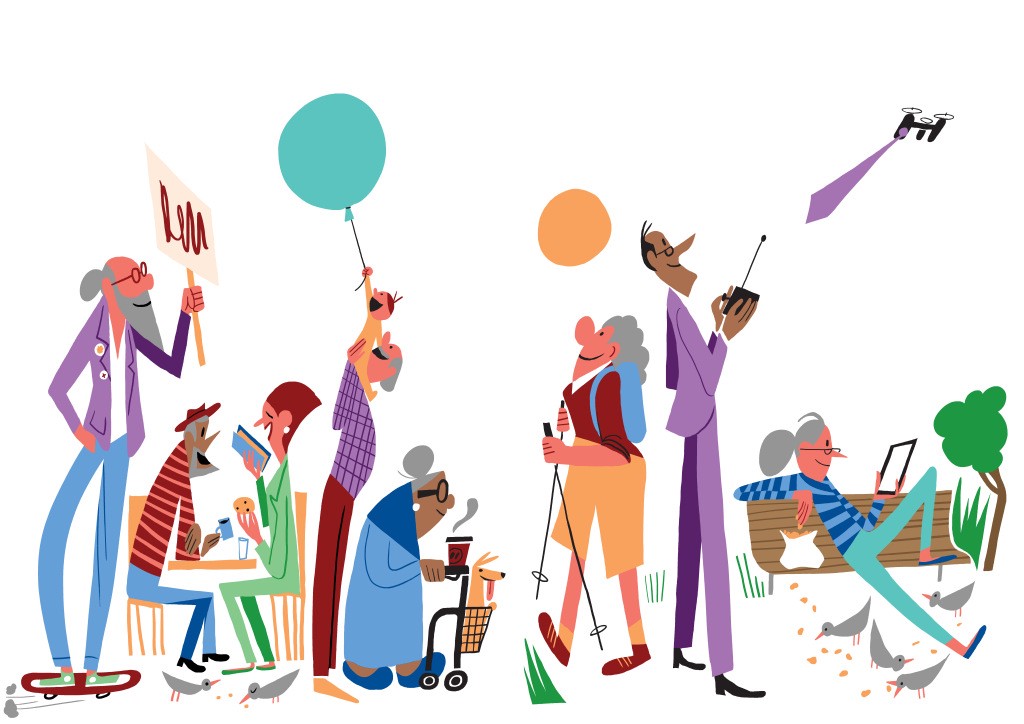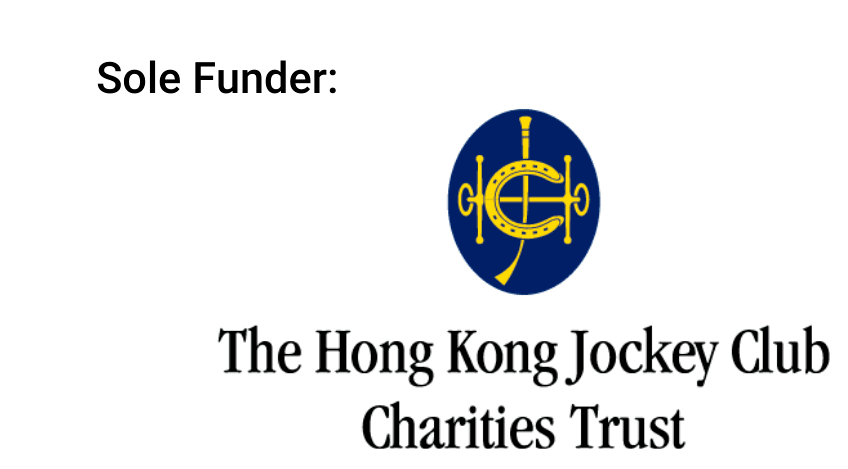“Smarter Healthy Cities Beyond COVID-19”
Main Theme: Development of Smarter Healthy Cities
The Healthy Cities program, promoted by the World Health Organization (WHO) , is a long-term, city-based development program that has been extended globally since the 1980s. This program has led a strong movement for public health at the local level that seeks to value health high on the agenda of cities. Other city-based programs, such as safe cities, resilient cities, age-friendly cities, smart cities, and compact cities, emerged following Healthy Cities' initial expansion.
, is a long-term, city-based development program that has been extended globally since the 1980s. This program has led a strong movement for public health at the local level that seeks to value health high on the agenda of cities. Other city-based programs, such as safe cities, resilient cities, age-friendly cities, smart cities, and compact cities, emerged following Healthy Cities' initial expansion.
These city-based programs feature the well-being of people and cities. All share common approaches, such as multi-sectoral collaboration, community engagement, vision sharing and planning, a whole of government approach, innovations, and evaluation. Since the start of the COVID-19 pandemic in 2020, cities have been at the forefront of its prevention and control. Healthcare interventions and innovative economic, social, environmental, and political interventions are all required to cope with this emerging infectious disease.
The strength of Healthy Cities is that they prioritize policies that create co-benefits between health, well-being, quality of life, and other city policies. The struggle with COVID-19 has allowed Healthy Cities to re-imagine how to collaborate with multiple sectors; coordinate between urban landscapes and the natural environment; take advantage of innovative technologies; feature a sustainable, equitable and inclusive society; and care for the planet beyond the end of this pandemic.
The 9th Global Conference of the Alliance for Healthy Cities will allow participants to look beyond COVID-19 and share processes of how smarter Healthy Cities can be created. The conference invites city mayors, policymakers in cities, practitioners, scholars, Medical and Health Services Professionals and local and national stakeholders interested in Healthy Cities and other city-based development programs.
Because of Healthy Cities' multi-sectoral nature, dialogues between experts from multiple disciplines are crucial. Therefore, we welcome participants with backgrounds in fields such as public health, environmental science, engineering, urban design, data science, cultural studies, community development economics, public administration, policy science, and management etc.
As academic and scientific expertise is vital for advancing the Healthy Cities program, the conference welcomes young and senior scholars. It particularly encourages those young scholars to interact with Healthy City leaders, practitioners, and community partners.
Sub-theme 1: Risk Communications in Emergencies
The right message at the right time from the right person can save lives. 
The rapid outspread of coronavirus disease 2019 (COVID-19) has challenged all countries globally, Including their public health systems. Cities are at the forefront of this pandemic and vulnerable to the impact of COVID-19. Risk communication is crucial as we need to have real-time exchange of information, advice and opinions between experts, officials and public, to enable informed decision-making and to adopt protective behaviours.
Risk communications in emergencies are vital in order to understand the threats and properly act on it towards safety and health promotion. Therefore, the World Health Organization (WHO) regarded Risk Communication and Community Engagement (RCCE) as one of the key pillars in public health emergency preparedness and response. RCCE is integral as all major global public health events in history relied on a high level of public trust from accurate and well-developed government information resulting in positive handling of uncertainties and fears during crises.
Therefore, in order to foster and strengthen risk communication and community engagement as an approach to protect the health of individuals and communities in urban localities during global health pandemics such as COVID-19, the China Hong Kong Chapter of the Alliance for Healthy Cities is organizing a symposium inviting keynote speakers and city representatives to share their experiences.
We highly recommend you to take the online course offered by World Health Organization on "Risk Communication Essentials" https://openwho.org/courses/risk-communication and read their guideline for "Emerging Risk Communication (ERC) Policy and Practice" https://www.who.int/publications-detail-redirect/9789241550208 before you join the conference.
Sub-theme 2: Mental Health Under and Beyond COVID-19
Mental Health conditions contribute to poor health outcomes, premature death, violations in human rights, as well as global and national economic loss. There can be no health or sustainable development without it as these conditions cause 1 in 5 years living with disabilities. During the COVID-19 pandemic, it reminded us of the importance of integrating mental health into preparedness and response plans for public health emergencies - which could be translated to updated implementation options and indicators for a concrete, evidence-based action plan. We are particularly concerned about their impact on adolescents, women, the elderly, grassroots and people who are infected with COVID etc. where they may be stigmatized and discriminated against. We need community-based approaches that are both affordable and accessible; provision of support through telecare and ways to overcome challenges; and the implementation of a stepped care model as an option to enhance the mental well-being of our populations.
violations in human rights, as well as global and national economic loss. There can be no health or sustainable development without it as these conditions cause 1 in 5 years living with disabilities. During the COVID-19 pandemic, it reminded us of the importance of integrating mental health into preparedness and response plans for public health emergencies - which could be translated to updated implementation options and indicators for a concrete, evidence-based action plan. We are particularly concerned about their impact on adolescents, women, the elderly, grassroots and people who are infected with COVID etc. where they may be stigmatized and discriminated against. We need community-based approaches that are both affordable and accessible; provision of support through telecare and ways to overcome challenges; and the implementation of a stepped care model as an option to enhance the mental well-being of our populations.
Sub-theme 3: Age-Friendly Communities Beyond COVID-19
 Age-friendly communities invested in programs and infrastructures in which older adults can age in place and lead a healthy, active life - which ultimately, ensures the eight domains of livability are accessible to them. In the wake of COVID-19, efforts pertaining to social inclusion and participation domains have been particularly challenging during the pandemic as they started to embrace digital communication tools. Therefore, there is a growing need for better communication infrastructure. Integrating technology with different age-friendly initiatives would ensure that older adults are included. This could happen via intergenerational programs, which centre around community interactions that deepen and maintain intergenerational relationships and benefit all parties involved. What were the challenges and opportunities you encountered and how can we do better?
Age-friendly communities invested in programs and infrastructures in which older adults can age in place and lead a healthy, active life - which ultimately, ensures the eight domains of livability are accessible to them. In the wake of COVID-19, efforts pertaining to social inclusion and participation domains have been particularly challenging during the pandemic as they started to embrace digital communication tools. Therefore, there is a growing need for better communication infrastructure. Integrating technology with different age-friendly initiatives would ensure that older adults are included. This could happen via intergenerational programs, which centre around community interactions that deepen and maintain intergenerational relationships and benefit all parties involved. What were the challenges and opportunities you encountered and how can we do better?


